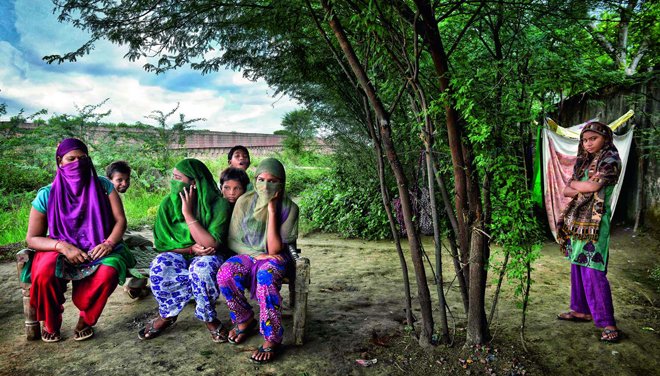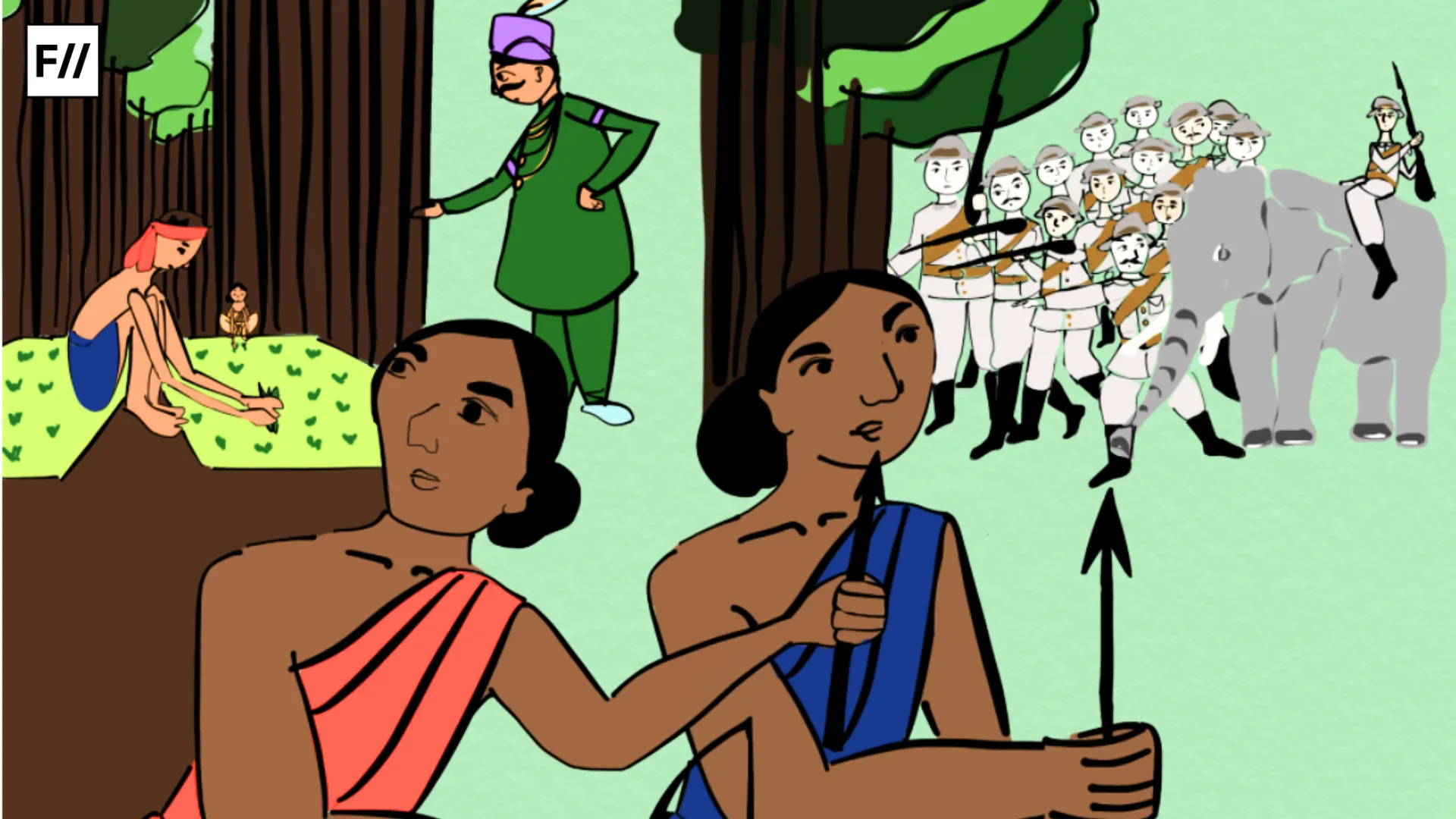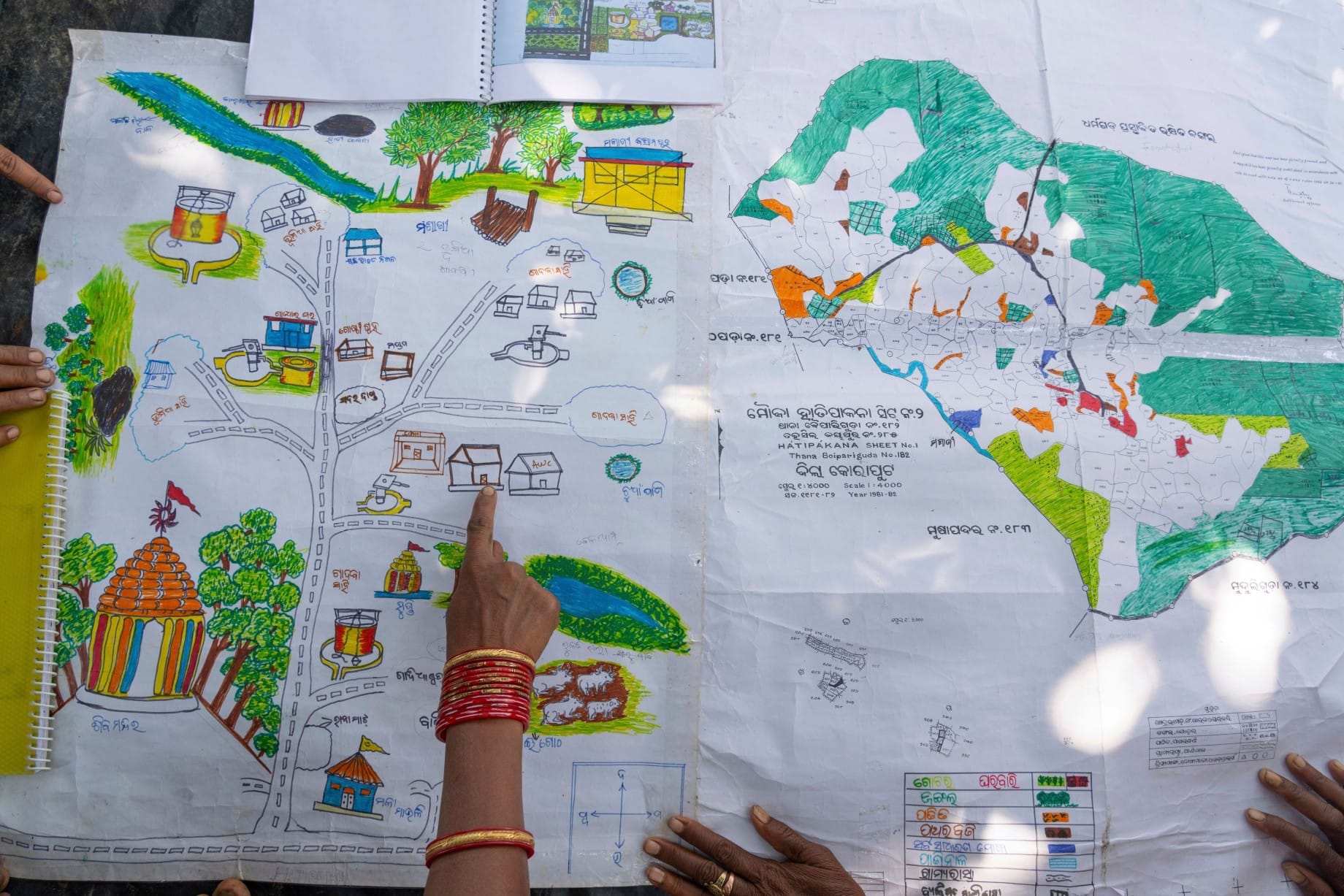“In the first half of the 19th century, Northern India was overrun by thugs and dacoits. The population, in general, was much distributed and did not feel secure. The Government of India had, therefore, to take special measures to meet the situation and systematic operations to suppress the terrible crimes committed by the thugs in 1830.”
This was the narrative drafted by the committee headed by M. Ayyangar, appointed by Prime Minister Nehru, to examine the repealing of the Criminal Tribes Act of 1871. The assumption that Northern India was indeed overrun by thugs and dacoits in the 19th century was a travesty of history.
It is an irrational and uncritical acceptance of logic advocated by colonial masters that resulted in a notorious piece of legislation in the first place. Though the communities that were criminalised were denotified in 1952, but are regulated by the Habitual Offenders Act – a regulation of various state governments and the Probation of Offenders Act are at the centre of this. These communities are invisible and inaudible and have been branded criminals by the law of the land.
Communities such as Nat, Bedia, Bachara, Perna, Sansi, Banjar, etc. have resorted to sex work as the major source of livelihood.
Centuries of stigmatisation and criminalisation of denotified nomadic and semi-nomadic social groups in India have adversely affected the livelihood sustainability of these groups. There is an occupational shift among these social groups and sex work for some of them became hereditary.
For communities such as Nat, Bedia, Bachara, Perna, Sansi, Banjar, etc., sex work is the major source of livelihood in various parts of the country. These groups often face exclusion from work within the informal sector due to the rampant discrimination against denotified tribes, and often do not face any alternate choices when getting into sex work.
The labour market is not ignorant of people’s personal and social identities. So this is the fate of the denotified tribes in India. Sex work for these groups has become a tradition to be practised by women. A girl born into this community, upon reaching the age of adolescence is trained and forced to enter into sex work, due to the lack of other viable opportunities of livelihood. Married women are forced into the same by their husbands and family members.
However, for some women in sex work, the profession is now a valid means of livelihood. This excerpt from an article by India Today interviews a sex worker Manju: ““Sex hamara khandaani dhanda hai (Sex is our family business),” says Manju Thakur, 30, who’s zealously protective of what to her is a lucrative livelihood.”
For women currently engaged in sex work, there needs to be policy intervention that recognizes sex work as work, with labour rights, a life free from discrimination, and the lack of criminalisation. At the same time, women belonging to the community of denotified tribes need access to more avenues of employment than just sex work, for the sake of women who do not want to be engaged in sex work or are forced into it. These women need to be rehabilitated and provided with more income-generating avenues. In the case of women who are forced into sex work under the garb of “tradition”, the state needs to intervene through public policy.
Also Read: Sex Workers And Feminists: Time To Strengthen Alliances
Sex work was not a hereditary occupation for these social groups, who were traditionally into nomadism, pastoralism and caravan trade in the pre-colonial era. But colonial European rationality, via the vehicle of the Salvation Army, which was suspicious of nomads, forced nomads to settle via the discriminatory Criminal Tribes Act 1871. This phenomenon gradually reduced the denotified tribes who couldn’t adapt themselves to the changes to resorting to sex work as a means of livelihood.
The state in post-colonial Indian society presumably has never legalised sex work in India. This is done in the name of continuing cultural and traditional practices of the denotified tribes; who were historically into nomadism, pastoralism, caravan trade, etc. but were never involved with sex work before the colonial criminalization of these groups.
The state has an idea about the vulnerability of Dalits (who have been discriminated against for ages), and yet it is failing to restrain itself from diluting the SC/ST POA Act. However, in the case of the denotified tribes in the country, the public policy and governance system of India doesn’t even account for communities such as Pernas, Nat and Bedia, Sansi, Banjar, etc. Their situation is even worse and they are subject to multi-dimensional exclusion.
sex work is forced upon them as a traditional practice.
It is imperative that the government undertake a social audit for these communities and then plan a targeted intervention through social welfare programmes to bring about change. But the thousands of years of social hierarchy that placed Dalits at the bottom wasn’t changed by the system of public policy that attempted to provide social justice to the historically unprivileged masses.
Further, the public policy framework has failed to address the issues of historically unprivileged masses under the system of social stratification. Hence, what can be expected in the case of denotified tribes in India? They have always been treated with suspicion, faced with stigma and criminalised by the law of the land.
The women in some of these communities are left with no other option but to resort to sex work as a means of livelihood. The state should seriously show their commitment towards the upliftment of these social groups by providing the opportunities for alternate forms of employment.
Also Read: 5 Prominent Indigenous People’s Movements That Hit Back At The State
Featured Image Credit: India Today
About the author(s)
Manohar Boda is a Research Scholar based at JNU - New Delhi.




